This is your body while rowing
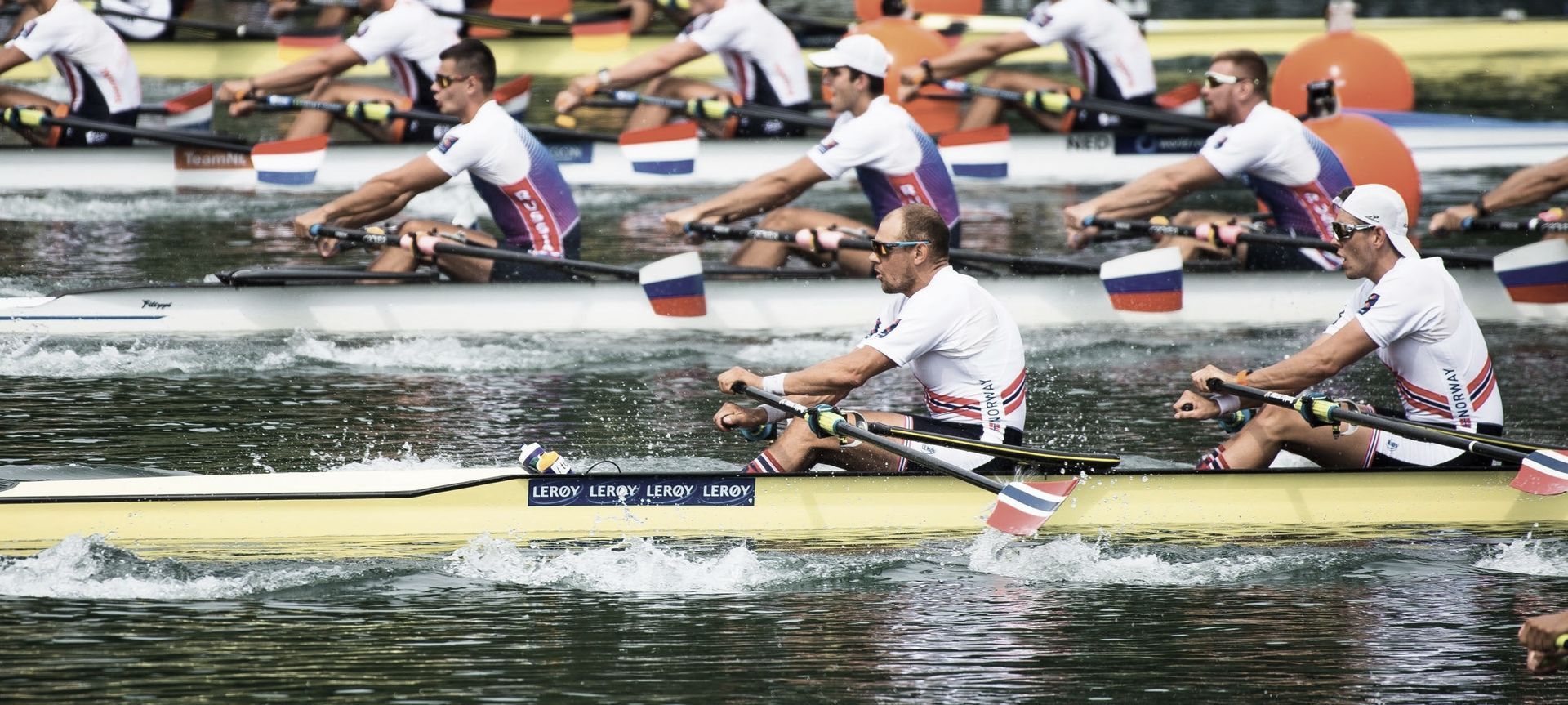
A look at the physiological demands of rowing
You move to the starting line with purpose. You feel the inevitable rush of adrenaline; part fear, part excitement. The draw of the fight, the prospect of victory, narrows your focus until you barely remember the world outside your racing lane. It's your Olympic final. You are a rower - one of the fittest athletes on the planet.
To your left and right, the other crews begin to align themselves for the start. You know what you would see if you cared to look in their faces; a mirror of your own nerves and steely determination. Directly ahead and behind you sit the rest of your crew, each of them has honed their minds and bodies through months and years spent on the rowing machine. Your coxswain calls for you to sit ready, to move almost to the top of the tracks on which your rolling seat rests, and place your oar squarely in the water ready for that first stroke.
The buzzer sounds. The initial surge off the starting line cannot be easily described for those who haven’t experienced it. You feel your heart rate jump to compensate for the enormous energy you now require. As a rower, every major muscle group in your body is called upon as you move through each stroke. From the balls of your feet, through your powerful quadriceps, trunk, back, shoulders and arms to the very tips of your fingers - every sinew and skeletal muscle cell chips in.
Physiologically, your body has just launched itself into one of the most demanding exercises you could put it through. To prevent the intense physical exertion from overwhelming your system, your body sets off finely tuned homeostatic mechanisms; though the race will not be pleasant, it certainly won’t do your body any harm.
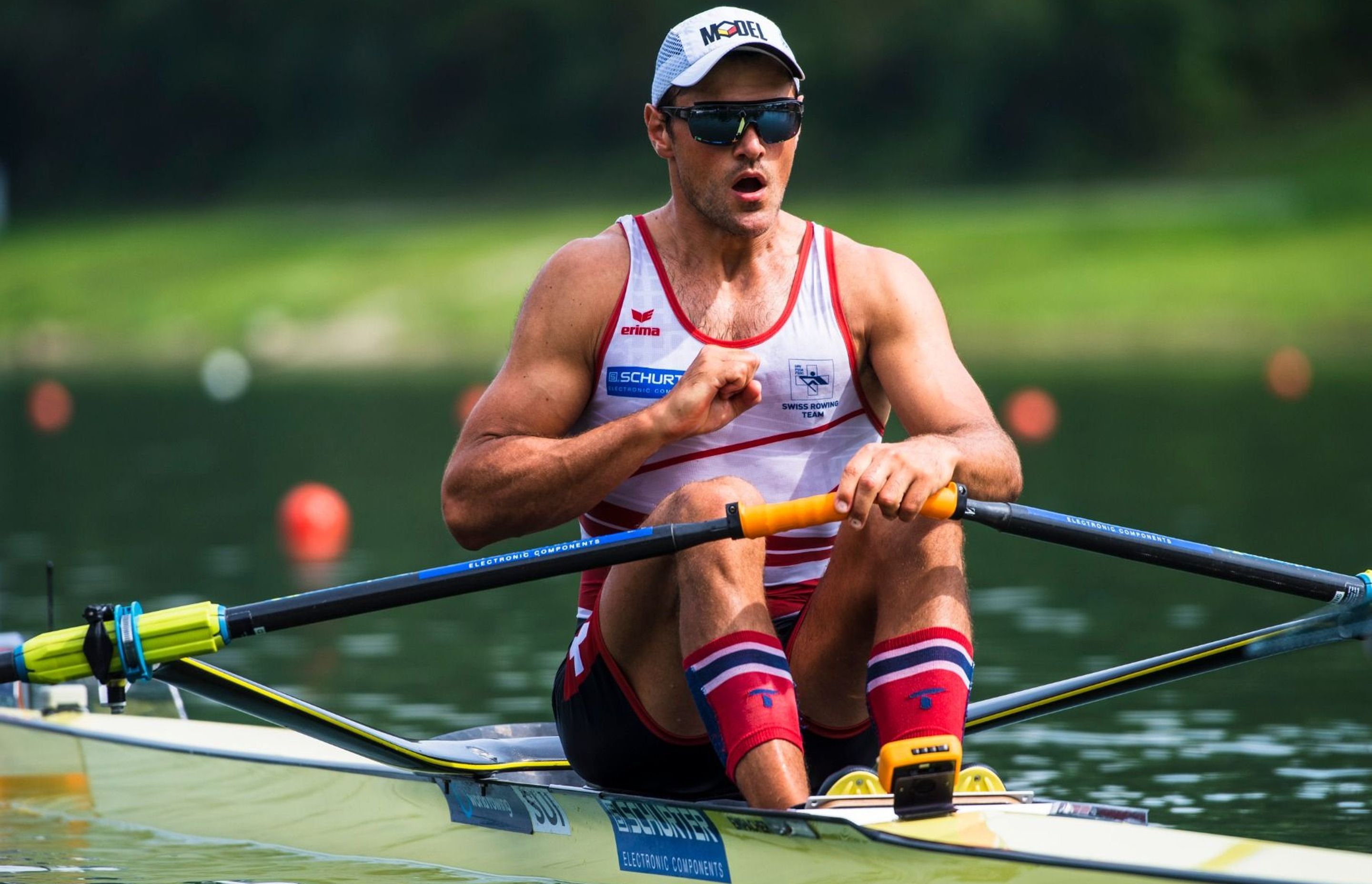
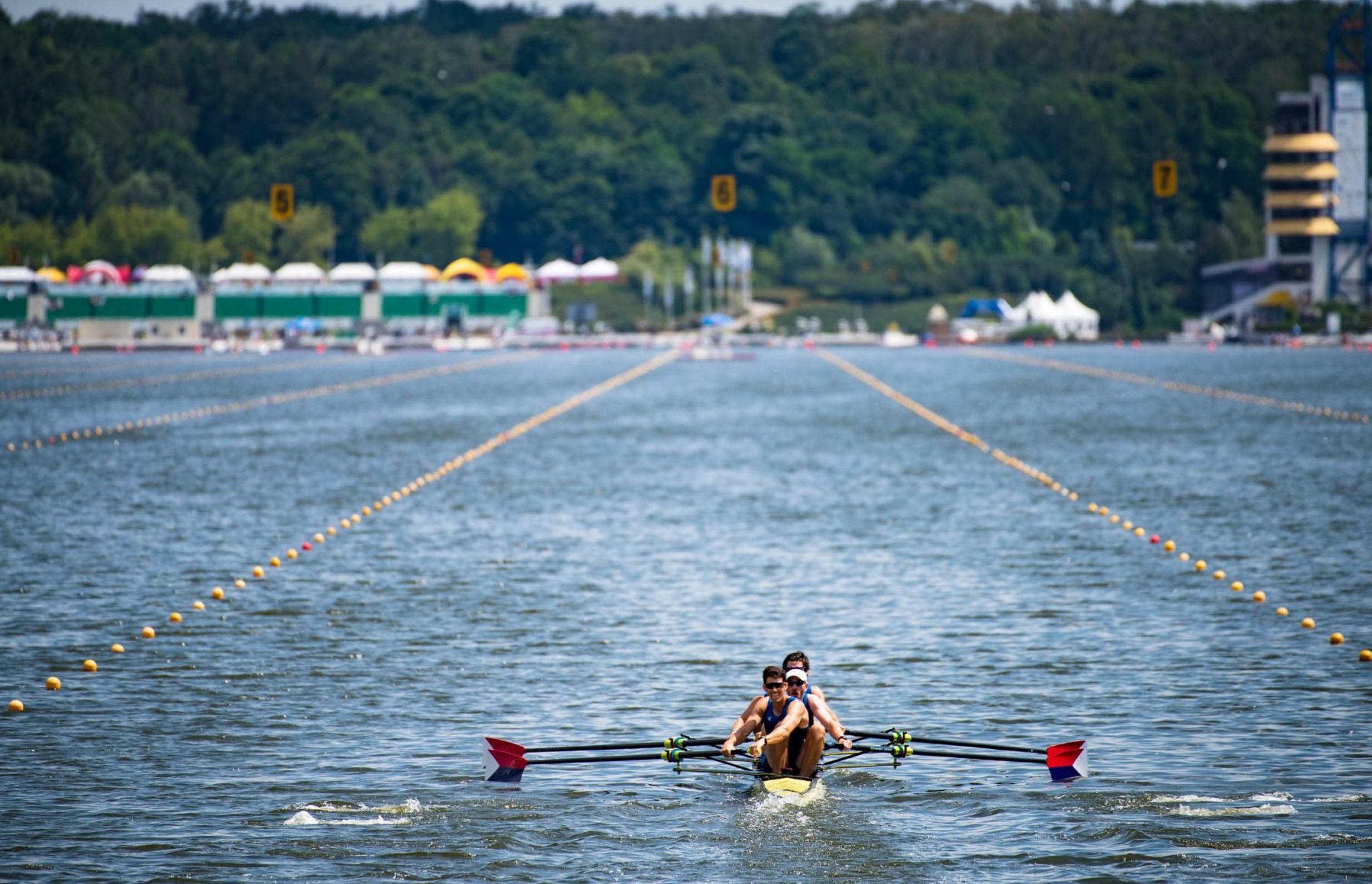
Your body needs energy to support the process and this comes in the form of ATP (adenosine triphosphate), the body’s energy currency, generated by the breakdown of glucose. Muscles can initially get some energy from within their own cellular stores; however, this is only sufficient for about fifteen seconds. At this point, the muscles are crying out for more glucose, which comes from carbohydrate. Thanks to the full-body demands, rowers burn calories faster than almost anybody else.
Your heart, lungs and capillary network are strong, efficient and highly developed thanks to the years of rowing behind you. They work together to supply the muscles with oxygen-rich blood to keep the lactate at bay. Hours spent on the rowing machine have given you a world-class cardiovascular system, ready to take on any demand. Just the anticipation of the race activates your sympathetic nervous system, releasing excitatory neurotransmitters which set off a cascade of physiological responses. Blood flow is directed to the most engaged, most demanding muscles. Your respiration increases in-depth and rate. Your breathing rate increases substantially, to provide the oxygen your body needs to metabolise glucose for your contracting muscles.
Control of heart rate comes from the central nervous system, which acts on the heart’s pacemaker, the sinoatrial node, to enact the necessary increase in output. The same system also causes the increase in stroke volume by enhancing the cardiac muscles’ ability to contract more forcefully. As a rower, your heart can not only beat more strongly, it can pump a greater volume of blood with every beat compared to a less fit individual. This is known as your cardiac output.
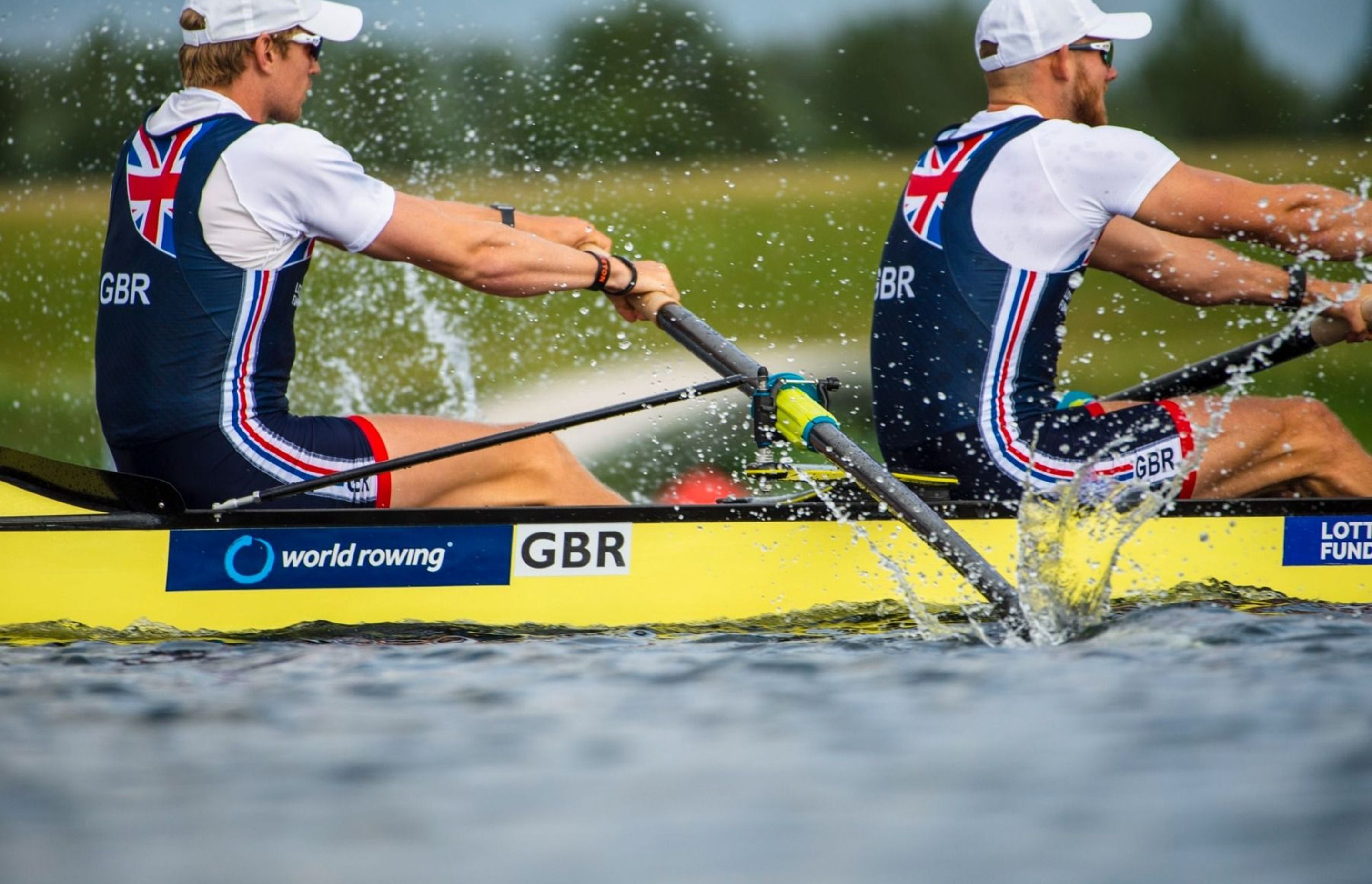
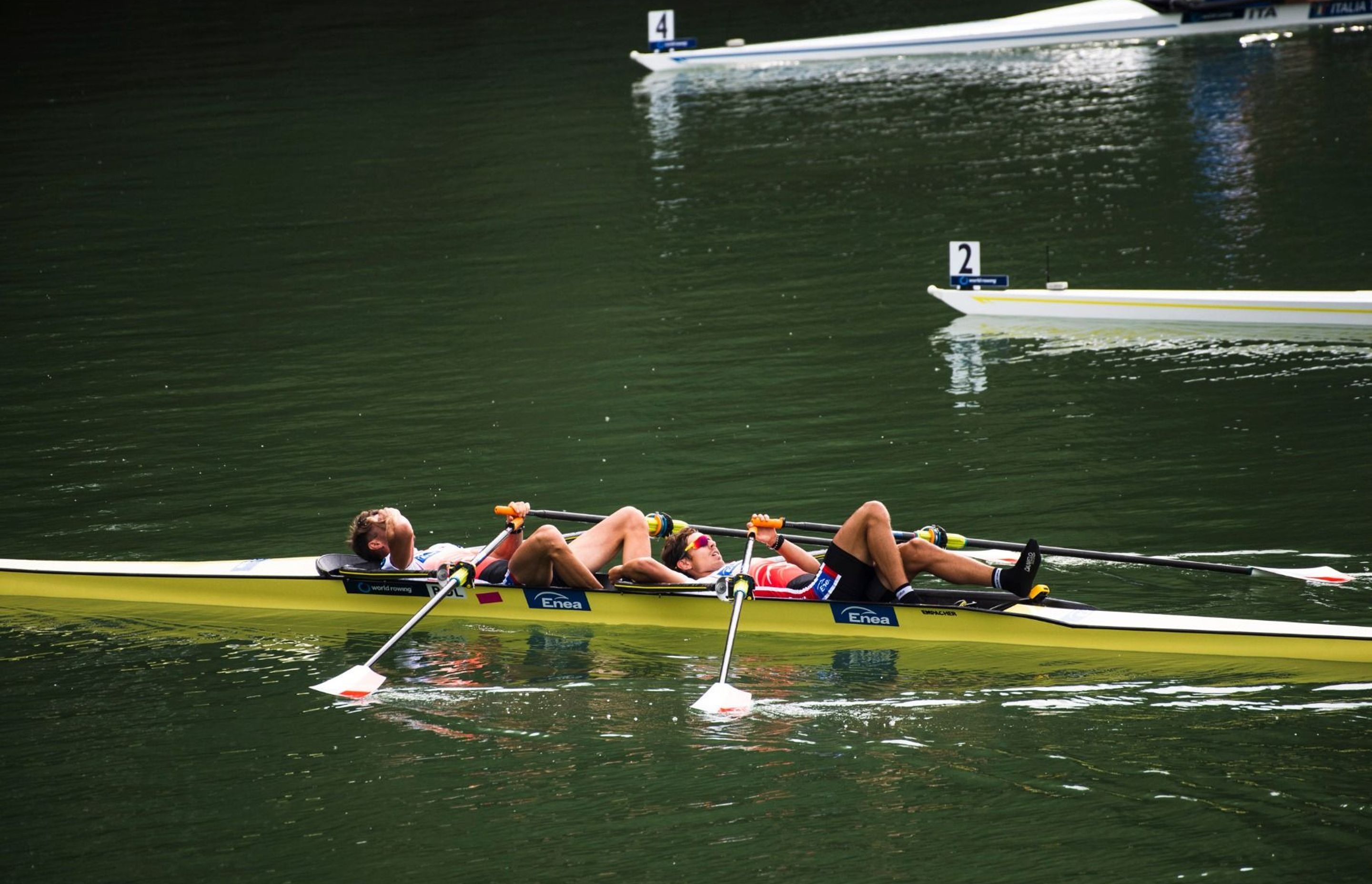
With your lean, strong, highly efficient rowing physique you have managed cover nearly 2km in around six minutes and you are nearing the finish line now. The effort is intense, and it burns, but you know its healthy; nothing your body can’t handle. There is no fear of rolling an ankle or blowing a knee in the dying moments; this is a non-impact sport, just keep rowing.
You are approaching the finish line now. Just six minutes into your Olympic final, you have managed to row yourself to complete exhaustion. With nothing left, you rely on the roar of the crowd to drown out the deafening protests from every fibre in your body. The finish buzzer sounds, you slump forward, depleted. In just six minutes you have lost almost 2 kilos of body weight from sweat alone and expended hundreds of calories. It hurts, but soon the pain will give way to euphoria as the body releases its own chemical pain killers to reward your efforts. You will only bounce back bigger, fitter and stronger from the full-body workout. You can be proud of yourself, you’re a rower.
